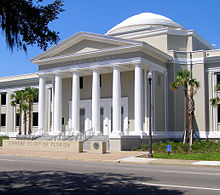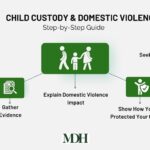
The Ills of Professional Misconduct – A Closer Look at the Recent Disciplinary Actions by the Florida Supreme Court
Introduction
As responsible bar councils across the world continue to shepherd their flocks towards the greater good, it’s paramount to confront situations where members of the fold swerve from the established path of professional standards and ethics. Recent disciplinary actions by the Florida Supreme Court against 13 state lawyers crystallize this statement.
Suspending Attorneys: A Necessary Measure
The Florida Supreme Court recently handed down suspensions and disciplinary actions to several attorneys across the state, underlining its commitment to maintaining propriety within the profession.
Details of Disciplinary Actions
The Supreme Court disciplined 13 attorneys, disbarring three and suspending 10. The involved lawyers represent law firms from different parts of the state. The disbarring provision stipulates that a disbarred lawyer cannot reapply for admission for five years and must pass a rigorous background check and retake the Bar exam. For those suspended for more than 91 days, they must demonstrate evidence of rehabilitation they wish to regain their licenses.
Disbarment vs. Disciplinary Revocation
While the punishments may seem harsh, a deep understanding of law practice ethics highlights the necessity of these disciplinary actions. The phrase “disciplinary revocation” often used in these contexts is equivalent to disbarment, highlighting the serious breach of professional conduct these sanctions align with.
Case Study: Abandoning Responsibility
One notable case features Ryan M. Layton, who was suspended for one year. Layton, admitted to practice in 2002, neglected multiple clients’ cases, failed to keep clients reasonably informed about their status, and did not diligently progress some of them. Such misconduct vitally undermines the trust that clients place in their attorneys.
Damage Beyond Monetary Loss
Client neglect is not the only form of professional misconduct. Lawyers are held to a high standard of ethical behavior, and instances of legal malpractice often involve much more than just negligence.
Case Study: Felony Suspension
A striking example in the recent disciplinary actions is the case of Gabriel F. V. Warren of Tallahassee who pled nolo contendre to a serious offence involving the unlawful use of a wireless communication device to facilitate a felony. This interim felony suspension sends a clear message about the crucial role of professional responsibility in law practice.
Promoting Professional Standards in Legal Practice
The Florida Bar, as an arm of the Florida Supreme Court, sees it incumbent upon itself to reinforce and uphold high standards of integrity and competence within the legal profession. These recent disciplinary actions are part of such vehement attempts to weed out misconduct and promote professional standards.
Establishing Rehabilitation
For those attorneys seeking to regain their licenses after suspension, presenting evidence of rehabilitation is crucial. This requirement is more than just a way to atone for past mistakes, but a reaffirmation of commitments to serve the public professionally and ethically.
Conclusion
In sum, the recent disciplinary actions by the Florida Supreme Court are a stark reminder of the importance of professional ethics in legal practice. When lawyers fail to meet the standards of their profession, it is the duty of the judiciary to step in and set things right. It is also a call to arms for those within the profession – a warning to maintain the values that the legal profession is built upon and an encouragement to strive for integrity, competence, and professionalism at all times.
Originally Post From https://www.tallahassee.com/story/news/local/2025/01/02/florida-supreme-court-disciplined-13-lawyers-from-across-the-state/77356352007/
Read more about this topic at
6 South Florida Lawyers Disciplined by State Supreme Court
Felonies, Frivolous Filings and the Jan. 6 Uprising

